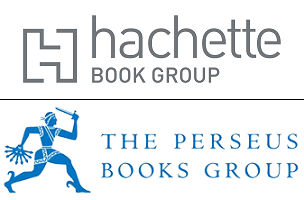 So, the Hachette Book Group is acquiring the Perseus Books Group again, 18 months after its first failed attempt to do so. This time it looks like the deal will stick, though.
So, the Hachette Book Group is acquiring the Perseus Books Group again, 18 months after its first failed attempt to do so. This time it looks like the deal will stick, though.
If you read industry news deals or press releases, you'll see all kinds of positive spin on deals like these. This is the third major publishing merger in the past three-plus years, preceded by the 2013 merger between Penguin and Random House and the acquisition earlier that same year of Harlequin by HarperCollins. The companies like to talk about expanding their global reach and investing in broadening their lists. And while these corporate agendas sound good on paper, the consolidation of publishing is not good for authors.
Legacy book publishing is already an inflexible dinosaur. Big publishers throw ludicrous sums of money at celebrity projects and well-connected authors. The inequity between author advance monies and monies allocated to marketing campaigns can only leave you scratching your head as to why a company would acquire an asset only to underfund it once it becomes a product. And then there's the flooding of the marketplace with as much inventory as they can get accounts to take despite the mutually understood but unspoken agreement that as much as 50 percent of those books will be returned. In fact, it's a losing enterprise, and legacy publishers are the only publishers that can afford to keep this kind of business model afloat because of their strong backlists that keep a steady stream of income coming in to enable this crazy cycle.
Publishers having more money and more weight to throw around means that those authors at the top will keep getting their huge (and now maybe huger) advances, and that agents and editors will keep scouting for "big books," which during my time as an editor for the Perseus Books Group meant "sure bets." Sure bets come in the form of proven authors, authors with celebrity connections, and authors with huge existing author platforms. (If you don't know what an author platform is, read this.)
When big publishers talk about being able to take more and bigger risks, they mean more and bigger risks to outbid and outperform their competitors at the top, everyone scrambling after the same few projects. I know lots of agents who only shop to the Big Five (Penguin Random House, HarperCollins, MacMillan, Simon & Schuster, and Hachette). The occasional project they shop to a small house they consider pro-bono work.
Houses breed cultures, of course. What workplace doesn't? But within book publishing, consolidation means fewer decision-makers and fewer personalities. It means a mandate from the top to acquire only the most commercial works. Editors in New York are taught to look for a certain kind of book, and this leads to myopic thinking about what's good, and even what's publishable. Due to the desire for celebrity connections, big book publishing is also fueling a type of publishing that's bottom-line driven, sacrificing the passion projects and special projects that editors used to be able to take risks on. Exclusively bottom-line driven publishing has created lowest common denominator publishing, where publishers are undervaluing (or just not seeing as viable) what's quirky, unique, and fringe in favor of appealing to the masses. And I don't think I need to go into a sidebar here about the general taste and sophistication level of the American masses.
If you are an aspiring author, every acquisition and merger of this type is another door being shut along your publishing journey. The barriers were already high, and with every consolidation, that barrier gets a little higher. Readers are impacted too, because we have more substanceless books than ever before, and more celebrity authors with ghostwriters telling us what to wear, how to throw a party, how to apply make-up, how to have good sex, what to eat, how to succeed. We collude, of course, because we buy into it. We are creating an upper echelon of authorship that's based on brand and celebrity and packaging. And these choices reverberate across our media and our culture. The consolidation of big publishing is no different than mom-and-pop shops going out of business because they can't compete with the Walmarts and the Targets of the world. So pay attention, because we're bearing witness to the further dilution of a withering traditional landscape, the consequences of which are currently reshaping everything we think we know about book publishing (and by extension authorship and readership).
